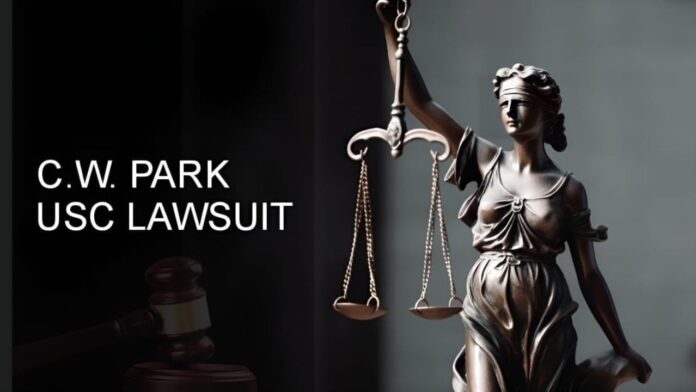The legal disputes involving prestigious institutions such as the University of Southern California (USC) always draw significant public attention, especially when they involve key figures like C.W. Park. In recent years, a lawsuit involving C.W. Park, a well-known academic and marketing expert, and USC has garnered attention due to its complexity and impact on the academic community. This article delves into the details of the C.W. Park USC lawsuit, exploring the background, legal proceedings, and the broader implications for both parties.
Background on C.W. Park
C.W. Park, or Charles Whan Park, is a highly respected figure in the field of marketing. He has served as a professor at USC’s Marshall School of Business, where he contributed significantly to both research and teaching. Park’s work primarily focuses on brand management, consumer behavior, and the psychology of marketing, and he is well-known for his scholarly contributions that have shaped how businesses approach marketing strategies.
Over the years, Park has earned a reputation as a thought leader, not just in academia but also within corporate circles, working as a consultant for various global brands. His expertise and innovative ideas in brand attachment have made him one of the most cited scholars in his field. Given his distinguished career, the lawsuit involving him and USC has naturally attracted wide interest.
The Nature of the Lawsuit
The C.W. Park USC lawsuit revolves around employment-related disputes, potentially linked to matters such as academic freedom, intellectual property rights, or contractual disagreements. While the specifics of the lawsuit are complex, these types of legal actions often arise in situations where there is a clash between personal or academic objectives and institutional policies.
At the core of the case is likely an issue related to faculty rights, either regarding research and teaching autonomy or possibly disagreements over administrative decisions that impact academic staff. In many instances, lawsuits involving universities and their faculty can be triggered by disputes over tenure, research funding, or the use of university resources.
Legal Proceedings and Updates
The legal proceedings in the C.W. Park USC lawsuit have been ongoing, with several critical updates emerging throughout the litigation process. Both parties have engaged in legal negotiations, likely attempting to resolve the dispute outside of court. However, the possibility of a trial remains if no settlement is reached.
Several legal documents, including court filings, testimonies, and motions, shed light on the nature of the claims made by Park against USC. As with many cases involving large institutions, the legal battle could involve multiple layers of proceedings, such as arbitration, preliminary injunctions, or appeals, depending on the decisions made by the courts during the process.
Given the involvement of a prominent academic like Park, it is likely that this case is being closely monitored by legal experts, academics, and media outlets, as it could set a precedent for future cases involving university faculty and their institutions.
Possible Implications for USC
The C.W. Park lawsuit holds significant implications for USC as a leading academic institution. The university has been involved in several high-profile legal matters in recent years, some of which have impacted its reputation and the way it handles internal affairs. If the lawsuit results in a decision that favors Park, it could prompt broader discussions about how universities manage faculty rights and internal governance.
One of the major areas of focus could be academic freedom and how much control faculty members have over their research and teaching methods. Universities often face scrutiny when faculty members challenge their policies, and this lawsuit could potentially highlight issues related to how academic institutions balance their own operational needs with the personal and professional rights of their faculty.
Moreover, if the lawsuit raises questions about the treatment of faculty at USC, it could lead to changes in how the university approaches contracts, tenure policies, and faculty support services. For an institution that prides itself on being at the forefront of academic innovation, these internal changes could have ripple effects across the broader academic community.
Implications for the Academic Community
The lawsuit also holds wider implications beyond USC. Cases like these often draw attention to faculty-administration relations across academic institutions globally. As universities continue to evolve in response to shifting societal, financial, and technological challenges, the role of faculty and the expectations placed on them are increasingly in the spotlight.
In recent years, there has been growing concern about faculty job security, especially regarding tenure-track positions, as universities look for ways to remain financially sustainable. Lawsuits like C.W. Park’s can reignite debates about the long-term protection of academic freedom and whether faculty members are afforded enough autonomy and protection from administrative decisions.
Additionally, the case could affect how institutions handle intellectual property and the use of research for commercial purposes. Given that C.W. Park is an expert in marketing and brand strategy, it is possible that elements of the lawsuit touch on intellectual property rights related to his academic research or consulting work. Universities often navigate a fine line between allowing faculty to engage in external consulting work and ensuring that the institution retains rights over any research or intellectual property generated on its behalf.

